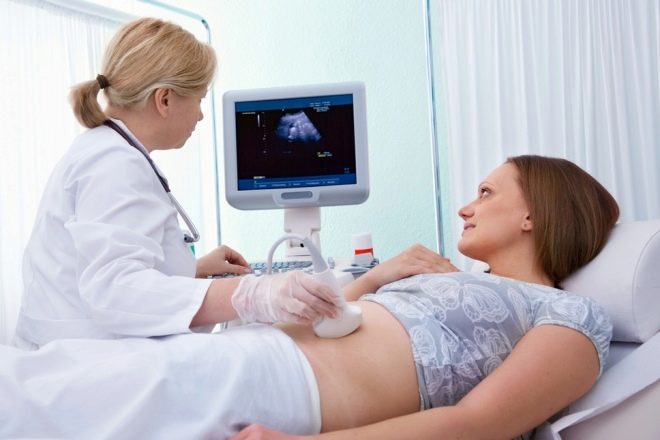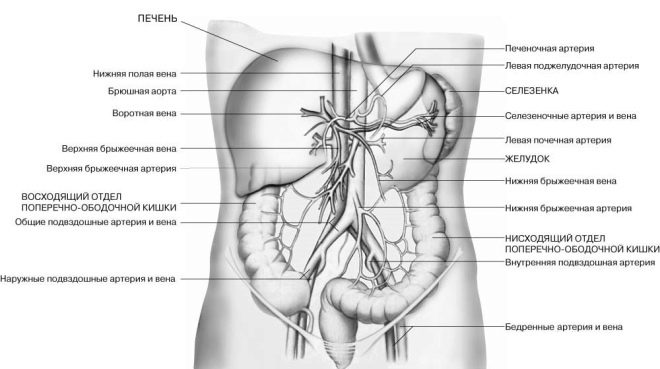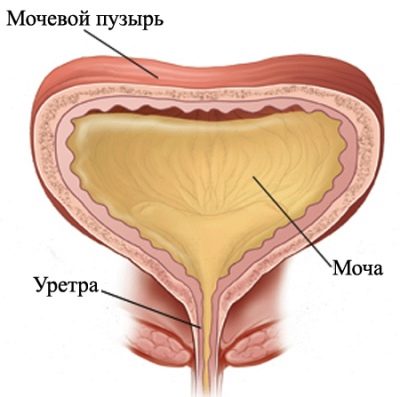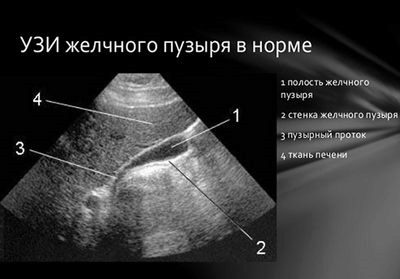How do abdominal ultrasounds of a child and how to prepare for the study?
An abdominal ultrasound scan may be necessary for a child for a variety of reasons. This diagnosis is considered to be fairly accurate and harmless, and therefore it is used quite often to find out the causes of the deterioration of the child’s condition. How the procedure is carried out, what it shows and how the mother properly prepare the baby for such an examination, we will tell in this material.
About diagnostics
Ultrasound research is firmly established in modern pediatrics. This is a non-invasive, painless and quick method, accurate enough to detect any pathology in a child. Rumors about the dangers of ultrasound for a child's body are somewhat exaggerated and they were born only on the fact that the long-term effects of ultrasound on the human body have not been sufficiently studied, because the method began to apply not so long ago.
It takes decades to collect medical statistics. However, so far no cases of the occurrence of one or another pathology in a healthy person due to the ultrasound scanning procedure were registered. Ultrasound is based on the ability of ultrasonic waves to penetrate tissues and fluids, reflect off organs, return as a return signal to the monitor of the device. This allows us to estimate the thickness, uniformity of the walls of organs, measure the amount of fluid in them, or determine changes in size and structure.
Ultrasound of the abdominal organs has no age restrictions and contraindications to use. Sometimes the time spent on the study allows us to save the child's life. The first ultrasound of the internal organs of the children is done during the mother's pregnancy: at the next ultrasound scan, the doctor necessarily assesses the presence and correctness of the location of the fetal organs.
After the baby is born, in the absence of visible pathologies and disorders of the state of the baby, the first examination of the abdominal organs can be carried out as part of the first medical examination - in 1 month. The Ministry of Health recommends conducting a study after a year.
What organs are researching?
The abdominal cavity is a rather voluminous concept. It includes the most important organs and systems for human life. All of them can be examined and evaluated by an expert on ultrasound. If the child is prescribed an ultrasound of the abdominal organs, this means that the child will be examined:
- liver;
- gallbladder and ducts;
- esophagus, stomach;
- pancreas;
- spleen;
- part of the intestine located in the abdominal cavity;
- large vessels (aorta, veins and arteries) passing through the abdominal cavity;
- kidneys, ureters, bladder.
Judging by the extensive list, it will be easy for the mother to understand that such a study can show a wide variety of disorders in the child’s state of health, which cannot always be guessed by the mother’s favorite methods - the appearance of the feces, appetite and general condition of the baby.
Scheduled examination does not always mean that the doctor suspects a child of some disease. Sometimes the examination is carried out only to make sure that the baby, on the contrary, everything is in order.
Indications
For children of the first year of life, the main indications for prescribing such a diagnosis outside of a preventive medical examination (at 1 or 3 months) The following symptoms and complaints are:
- poor appetite, heavy regurgitation, frequent vomiting;
- systematic diarrhea or frequent constipation in infants;
- shrill crying during or after feeding;
- the presence in the fecal masses of impurities - blood, pus, as well as an unusual color or unpleasant smell of fecal mass of the baby;
- change in the color of urine or the appearance of its sharp smell, as well as the crying of the child when urinating;
- insufficient weight of the child, inappropriate to his age, slow physical development;
- cryptorchidism (absence of testicle or both testicles in the scrotum in boys);
- discoloration of the skin (yellowing, cyanosis, waxing of the skin);
- violation of blood coagulability by tests, as well as by the appearance of unreasonable regular bruises;
- dramatic weight loss of the child in the absence of any changes in his diet.
Ultrasound of the abdominal organs is strongly recommended for all premature babies, crumbs, born either with a deficiency of body weight, or with a large weight (more than 4.5 kilograms). Also, this study is prescribed before any surgery in the abdominal cavity.
Training
If the child is faced with such a diagnosis, parents should know that special preparation for it is necessary without fail. The results obtained depend on how correct the preparation for the study was. In order for them to be reliable, it is important to ensure that the diagnostic rules are followed in advance.
- For newborns, restrictions are not large-scale and significant. Conduct research optimally just before the next feeding. This may be associated with some inconvenience associated with the return journey from the medical facility to home. A hungry baby can very demandingly claim their rights to food.
- Make sure that you have a bottle with a mixture or expressed breast milk when you visit the clinic or medical center so that the baby can eat after the test.
- Before the ultrasound procedure, at least 3 hours should pass from the moment of the last feeding, if the baby eats breast milk or 3.5 hours, if the baby is an artificial animal, it is also undesirable to give the baby to drink water. Survey should be carried out on an empty stomach.
- On the day of the examination, babies should not be given fruit and meat puree - such food is digested longer.
- Children older than one year should, two days before the examination, exclude from the diet foods that increase gas formation in the intestines. No need to eat peas and legumes, white bread, pastries on yeast dough, grapes, bananas. Avoid fatty foods, as well as raw vegetables and fruits, carbonated drinks and dairy products. On the day of the examination (at least 6 hours), the child is not allowed to eat, and for 2 hours they do not give water.
Ignoring these requirements may entail making erroneous diagnoses. So, in the process of digestion, if it does not have time to complete, some organs, for example, the spleen, stomach, pancreas will be somewhat enlarged. And with gases in the intestines, the loops can press on the internal organs, causing a completely natural visual deformation.
- If a more thorough examination of the bladder and kidneys is required, the doctor may warn in advance that the mother, on the contrary, should give the child more fluid in front of the ultrasound. It is necessary to evaluate the work of the ureters and kidneys, possible suspensions in the contents of the bladder. If such a warning has not been received, do not fill the bladder.
- Also, in addition to diagnosing some digestive problems, the doctor may ask the mother to give the child an enema on the eve of the procedure. Again, without special orders to clean the intestines there is no urgent need.
- For an infant, do not forget to bring a clean diaper with you, which you can lay on the couch, wet wipes and replaceable diapers.It is advisable to take care of “distracting maneuvers” - a dummy, a toy, a rattle - all this may be needed if the baby suddenly starts to act up. Mom will be able to distract the crumbs and give the doctor the opportunity to complete the begun examination.
- For a child older than two years it is important to conduct psychological training - to tell you that the upcoming study is not painful and not scary. Slide your baby on the naked stomach with a remote control from a TV or other plastic object, thus showing that nothing terrible will happen. Everything will be exactly the same.
How is it done?
The child is located on the couch on a pre-bedded diaper. The abdomen becomes bare, a special acoustic gel is applied to it, which facilitates the sliding of the sensor and providing the best conductivity of ultrasound. The sensor for this type of diagnosis is used transabdominal.
The research algorithm is quite simple - the doctor evaluates all the organs one by one, the description of the results is indicated in a special ultrasound protocol. The procedure lasts about 20 minutes. Given that the amount of work in the case of the study of internal organs is quite large, the doctor may need a little more time. If a separate study with the function of the gallbladder is required, the doctor may perform an ultrasound scan with a load - a study after the pre-breakfast.
Rules and reviews
The dimensions of the internal organs of the abdominal cavity change with age. If the doctor finds that the body is exceeding or lagging in size, he will definitely indicate this in the opinion and recommend additional examinations.
Examining the child's liver, the doctor notes the evenness and clarity of the contours of the organ, as well as the absence or presence of cysts. The survey allows you to consider even parasitic cysts caused by worms, echinococcus and other parasites. According to the state of the liver, the doctor can understand whether the child has signs of hepatitis, whether there are neoplasms or metastases in the organ.
Assessment of the gallbladder includes fixing its size, a description of the contours, as well as the patency or state of biliary dyskinesia. The pancreas is assessed for edema, which may indicate a possible pancreatitis. Important and the lack of swelling of the spleen. Its increase may indicate both that the child has recently had a viral infection and that the baby has blood diseases.
Similarly, each of the organs is evaluated and described.
If deviations from normal development are detected or functional disorders are detected, the doctor will inform the mother of this. She will not have to deal with the ultrasound protocol - the doctor will do it.
The need for such a study is recognized by all parents, especially if the doctor gives a referral to an ultrasound, relying on the complaints of the mother and father or the child himself. Choosing where to do the survey is the main question. Parents are naturally interested in the qualifications of the doctor, because everyone wants the child examined as closely as possible, carefully, did not miss the problems and did not find problems that really do not exist.
Therefore, in specialized forums on the Internet there are a lot of parent reviews about entire clinics and individual doctors. If you wish, you can find the best recommendations and negative reviews. According to reviews of mothers, quite often doctors, giving direction to such a diagnosis, forget to instruct parents on how to conduct training. And already in the diagnostic room it turns out that the examination of the child at the moment cannot be performed.
On what should be the preliminary preparation of the patient for an ultrasound of the abdominal cavity, see the following video.




















